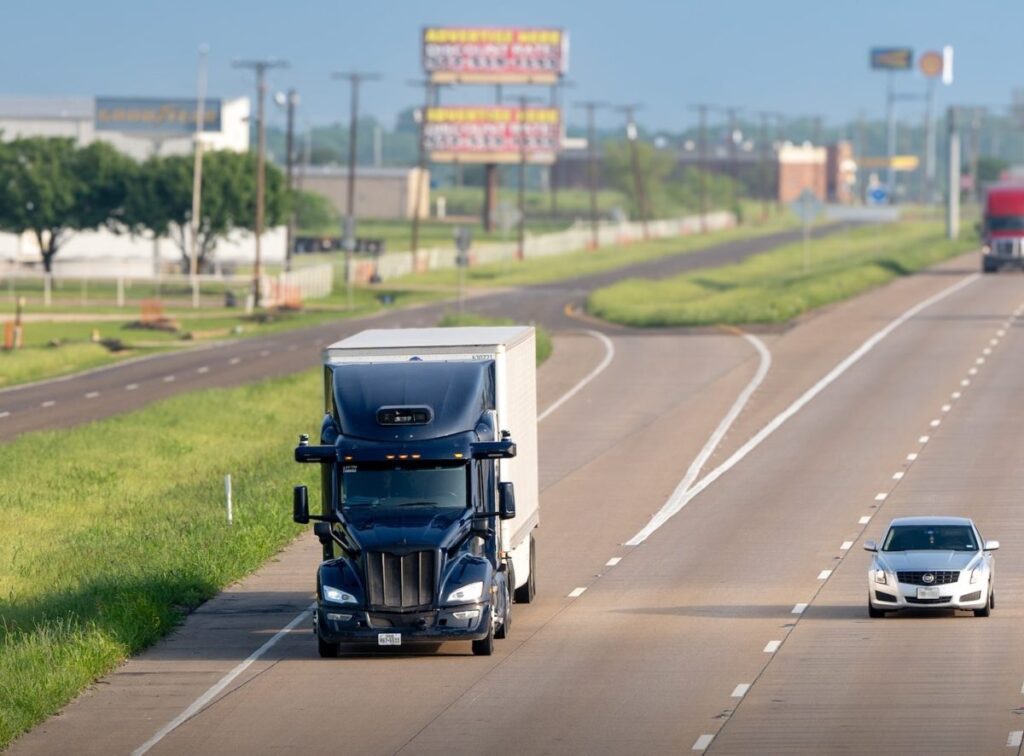Aurora Innovation Launches Driverless Truck Service in Texas
In a groundbreaking development for the autonomous vehicle industry, Aurora Innovation has initiated a self-driving truck service in Texas, positioning itself as the pioneer in deploying driverless, heavy-duty trucks for commercial use on U.S. public roads.
Service Launch Timeline
The launch coincides with Aurora’s revised schedule, moving from an expected 2024 rollout to an earlier debut in April 2025. This comes shortly after competitor Kodiak Robotics began operational deliveries of autonomous trucks for off-road use.
Operational Details
Aurora’s self-driving freight operations commenced this week, with routes established between Dallas and Houston. The initial launch customers include Hirschbach Motor Lines and Uber Freight. So far, the technology has successfully traversed 1,200 miles autonomously, demonstrating its capabilities without a human driver.
- Aurora plans to scale its operations to develop a fleet of “tens of self-driving trucks.”
- Expansion into El Paso and Phoenix is targeted by the end of 2025.
- Currently, Aurora’s fleet includes more than 30 supervised autonomous trucks, handling over 100 commercial freight loads weekly.
Strategic Partnerships and Future Goals
The company aims to own, maintain, and insure its self-driving trucks for its clients, collaborating with strategic partners such as Volvo Trucks and Paccar to create high-volume manufacturing solutions. Commercial customers are expected to purchase these trucks directly from manufacturers starting in 2027 or earlier.
Safety and Compliance Challenges
A key concern for Aurora has been safety compliance. During the launch, inquiries regarding the need for pullover maneuvers or remote human assistance were made, but CEO Chris Urmson stated that the Aurora Driver “performed perfectly” during his initial trip.
As self-driving trucks gain traction, the timing is crucial given the current challenges within the trucking industry, including labor shortages and increasing operational costs. A report from ACT Research indicated a projected decrease in freight volumes in the U.S. this year due to declining consumer spending.
Impact of External Factors
Responding to how these industry shifts might influence Aurora, a company spokesperson emphasized ongoing challenges, such as soaring operating costs and underutilized trucking assets. Aurora plans to release its first-quarter financial results soon, discussing the implications of current trade tensions on its future outlook.
Compliance with Federal Regulations
In early 2025, Aurora filed a lawsuit against federal safety regulators after a court denied its request for an exemption from a regulation requiring warning triangles on the highway— a significant challenge for operations lacking a driver.
To ensure compliance while deploying a fully driverless service, it would typically be necessary to utilize human-driven vehicles as escorts. However, Aurora has confirmed that its operations have not required lead vehicles, chase vehicles, or police escorts.
Currently, details on how Aurora adheres to federal regulations without human drivers remain unclear, as a company spokesperson has not yet provided further information on this compliance issue.
This article has been updated with additional insights and statements from Aurora’s representatives.
